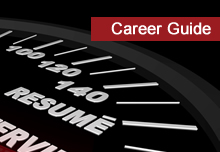What is an Interview
 A job interview is a conversation which occurs between a potential employer and a job applicant. During the job interview, the employer has the opportunity to appraise applicant’s qualifications, appearance and general fitness for the job opening. In parallel the applicant tries to learn more about the position, to appraise the employer and to find out if your needs and interests will be met. Think of the interview as a conversation between two people where each person is trying to learn more about the other. The interview process is a two-way street. You are traveling toward a goal—the right job and the employer is traveling toward a goal—the right hire.
A job interview is a conversation which occurs between a potential employer and a job applicant. During the job interview, the employer has the opportunity to appraise applicant’s qualifications, appearance and general fitness for the job opening. In parallel the applicant tries to learn more about the position, to appraise the employer and to find out if your needs and interests will be met. Think of the interview as a conversation between two people where each person is trying to learn more about the other. The interview process is a two-way street. You are traveling toward a goal—the right job and the employer is traveling toward a goal—the right hire.
Traits on which you will be judged
- Personal Characteristics. Do you have good grooming? Do you have good manners? Do you maintain good eye contact?
- Self-Expression. Are you confident in expressing your ideas?
- Maturity. What about your overall sense of balance? Can you make value judgments and decisions?
- Personality. What are you like? Outgoing? Shy? Overbearing? Quiet? Will you fit into their corporate culture?
- Experience. What about your academic achievements? Involvement in extracurricular activities? Job skills?
- Enthusiasm and Interest. Are you really interested in the employer? The particular job? Industry?
- Career Goals. What do you want to do in your professional life? Is it consistent with the company goals?
More about the Interview
As a general rule, a job interview is an important part of the process of applying for a job, and it may range in formality from a casual conversation to a series of serious discussions with an assortment of people working within the company.
If a job applicant manages to land a job interview, it indicates that the employer has at least some interest. Typically, an applicant responds to an advertised job opening, providing a resume and other requested materials. The employer or a representative reviews all received applications, and decides who should be invited back for an interview. In some cases, a preliminary interview may be held on the phone, to save resources and time for both parties.
Depending on the size of a company and its organization, an applicant may only have one job interview. This is common with small businesses, in which candidates are often interviewed directly by the employer. In other cases, a representative of the human resources department may interview a candidate first, and then he or she will go through a series of interviews with potential supervisors and other personnel. Larger companies may also have interview panels with multiple members who cooperate to make a decision.
Coaching for job interviews can get quite extensive. As a general rule, it is a good idea to dress neatly, as though you are dressing for work. In addition, it helps to be organized and well put together. It helps to be able to answer questions about material on your resume, for example, and it is an excellent idea to put together a list of questions of your own. After a job interview, it is conventional to shake hands with the interviewers, and to follow up with a thank-you letter to keep your face fresh in the mind of your potential employer.
Preparing for a face-to-face interview
 Your interview invitation will probably give the following information. If not, it is perfectly acceptable to ring up and ask:
Your interview invitation will probably give the following information. If not, it is perfectly acceptable to ring up and ask:
- How long will the interview last?
- What format will the interview take?
- Will there be any tests or group exercises?
- Do I need to bring or prepare anything specific?
Make sure that you:
- double check the time and date of your interview;
- know how to get to the venue and how long the journey takes;
- confirm your travel arrangements carefully, especially if you have to make rail connections;
- check for any planned disruptions to road or rail services;
- plan to arrive early, rather than rushing in late. This is especially important for assessment centres, where the day runs on a tight schedule;
- find out if accommodation is provided if needed.
 What to take
What to take
- The interview letter, with the name(s) of the interviewer(s) and their address and phone number.
- A map of how to get there.
- A copy of your CV and/or application form.
- A note of the key points you want to make and any questions you want to ask.
- Money for a taxi in case you are running late.
- A number to call if you are running late (but remember to switch your mobile off before going into the interview).
- A small bottle of water.





